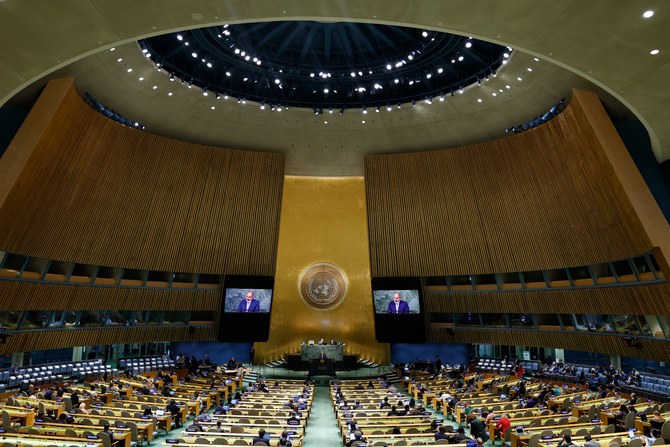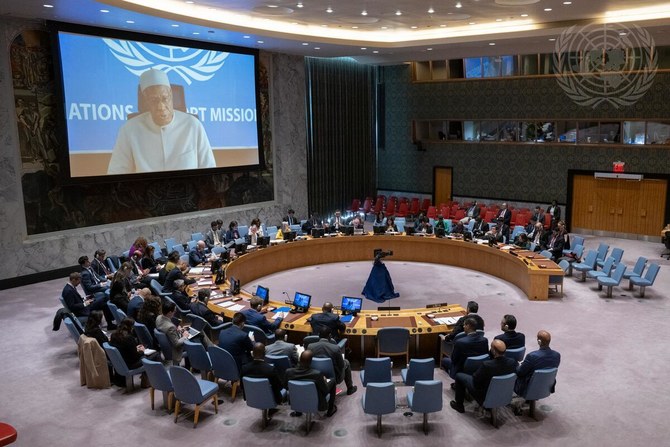
The 78th UN General Assembly is underway and the world leaders who have made their annual pilgrimage to New York know what is at stake this year for the UN, the world order that underpinned all the post-Second World War international institutions and the fate of multilateralism and cooperation due to the unprecedented challenges that our world faces.
The theme that General Assembly President Dennis Francis, the permanent representative of Trinidad and Tobago, has chosen says it all: “Rebuilding trust and reigniting global solidarity.” The trust deficit among the nations of the world, especially between the Global South and the developed world, or the Global North, is a widening chasm.
Global solidarity has given way to division, competition and fragmentation. Reigniting it will take a real commitment by those who have the power to rekindle the promise of peace that the UN represents.
All the analysis about this UNGA is full of dread about the state of our world and the future of the UN and global cooperation. It is true. The world that is descending on the UN headquarters is not the same world that we knew even a year or two ago. The world is divided like we have never seen since the founding of the organization. The UN itself is under tremendous pressure to stay relevant only because those who are supposed to keep it strong are undermining it by their actions outside of the UN framework, sometimes in contravention of its charter or via inaction in the face of colossal challenges. These challenges range from conflict to rising poverty and inequality to a worsening climate crisis and natural disasters, the consequences of a terrible pandemic and backsliding on democracy and human rights.
The trust deficit among the nations of the world, especially between the Global South and the Global North, is a widening chasm
Dr. Amal Mudallali
The UN is reeling under the weight of these multiple crises and the gridlock that has plagued its Security Council, which failed to uphold its responsibility to maintain peace and security in the face of conflict on many occasions last year.
It is very easy for world leaders and experts alike to blame the UN. But the blame should be laid on the shoulders of member states, especially the great powers, including the new rising powers, and not the organization. The UN is only as strong as its members and their actions, and is as weak as they make it. The last year was a showcase of how not to treat the UN and what happens when you dilute its influence by acting outside or around it, weakening it. Last year’s diluted multilateralism, power competition and unfulfilled commitments to the UN and to solving urgent global problems were a harbinger of a more difficult path ahead.
This reality was, no doubt, what Secretary-General Antonio Guterres had in mind when he decried the assault on peace. “Drop by drop, the poison of war is infecting our world,” he said last week. He appealed to the world leaders who are coming to UNGA, saying: “This is not a time for posturing or positioning. This is not a time for indifference or indecision. This is a time to come together for real, practical solutions.”
The UN has prepared for the world leaders and their delegations a very full agenda, along with clear paths to solutions should they decide to put our world on a path of recovery and healing.
The centerpiece of the UNGA’s meetings is the Sustainable Development Goals Summit. It is central because the implementation of the goals is currently off track. The summit will issue a political declaration that has already been negotiated among member states and, for the first time, it includes “bold” language that was not imaginable in previous declarations. It admits that the achievement of the SDGs is “in peril” and expresses deep concern over the “marked increase of the estimated SDG financing gap and (recognizes) the urgency of providing predictable, sustainable and sufficient development finance to developing countries from all sources.”
The declaration calls for “strengthened multilateral actions and coordination by all creditors to address the deteriorating debt situation.” It supports the “reform of the international financial architecture … including its business models and financing capacities,” saying that it “must be made more fit for purpose, equitable and responsive to the financing needs of developing countries, to broaden and strengthen the voice and participation of developing countries in international economic decision-making, norm-setting, and global economic governance.” This is new language for a UN declaration endorsed by world leaders, including the big powers, and it indicates a change reflective of the new global political landscape, in which the voice of the Global South is becoming clearer, louder and bolder.
Qatari Ambassador to the UN Sheikha Alya Ahmed Saif Al-Thani, who led the negotiations on the political declaration with her colleague from Ireland, told Arab News that the political declaration “symbolizes a moment of unity among nations, emphasizing their shared responsibility to address pressing global challenges.” She added that the declaration represents a “solid baseline for the negotiations yet to come in the upcoming UNGA session on the future pact that is anticipated to be negotiated and adopted at the 2024 UN Summit of the Future.”
World leaders will also have a chance at the Climate Ambition Summit to “walk the talk” on efforts to tackle the climate crisis, as a UN press release said. The summit will focus on “three acceleration tracks: ambition, credibility and implementation.”
The last year was a showcase of how not to treat the UN and what happens when you dilute its influence by acting outside or around it
Dr. Amal Mudallali
Pandemic preparedness will also be the subject of a meeting between world leaders, the president of the General Assembly and the World Health Organization. They will adopt a declaration on the road ahead for confronting future pandemics and ensuring global health.
There will also be a meeting on universal healthcare, a high-level dialogue on financing for development and one on the fight against tuberculosis. The last meeting is a ministerial one to start preparation for next September’s Summit of the Future.
With this packed agenda, UNGA 78 is on its way to being one of the busiest in a while, although President Joe Biden of the US is the only leader from the five permanent members of the UNSC slated to attend. The other P5 leaders’ absence should not take away from the importance of having the rest of the world gathered in New York. Maybe their absence should be a message to all that the crucial work of the UN continues regardless of who attends. Since their representatives are in the room, nothing should take away from the importance of the work that will take place at the UN this week.
The fact that this organization and the architecture that it was built upon has been able to ward off another world war for 78 years so far, while succeeding in keeping all these countries working together (193 now, compared to the 50 brave ones that set it up) is a vote of confidence in this imperfect organization. I used to think of us inside that building on First Avenue in New York as Noah’s Ark. We were still sitting together, negotiating and working toward a better world, while the noise, distrust, hatred and divisions of the outside world were opening more gates for floodwater to drown the sailing ship.
Whenever I am faced with any criticism of the UN, I remember American President Dwight Eisenhower, who said at the General Assembly in 1953: “Never before in history has so much hope for so many people been gathered together in a single organization.” His words ring as true today as they did then, especially when he added: “With all its defects, with all the failures that we can check up against it, the UN still represents man’s best organized hope to substitute the conference table for the battlefield.” We should all, especially the world leaders, remember that this week, in that magnificent reservoir of hope on the East River, and commit to preserving the UN and making it better.
Dr. Amal Mudallali is an American policy and international relations analyst.












